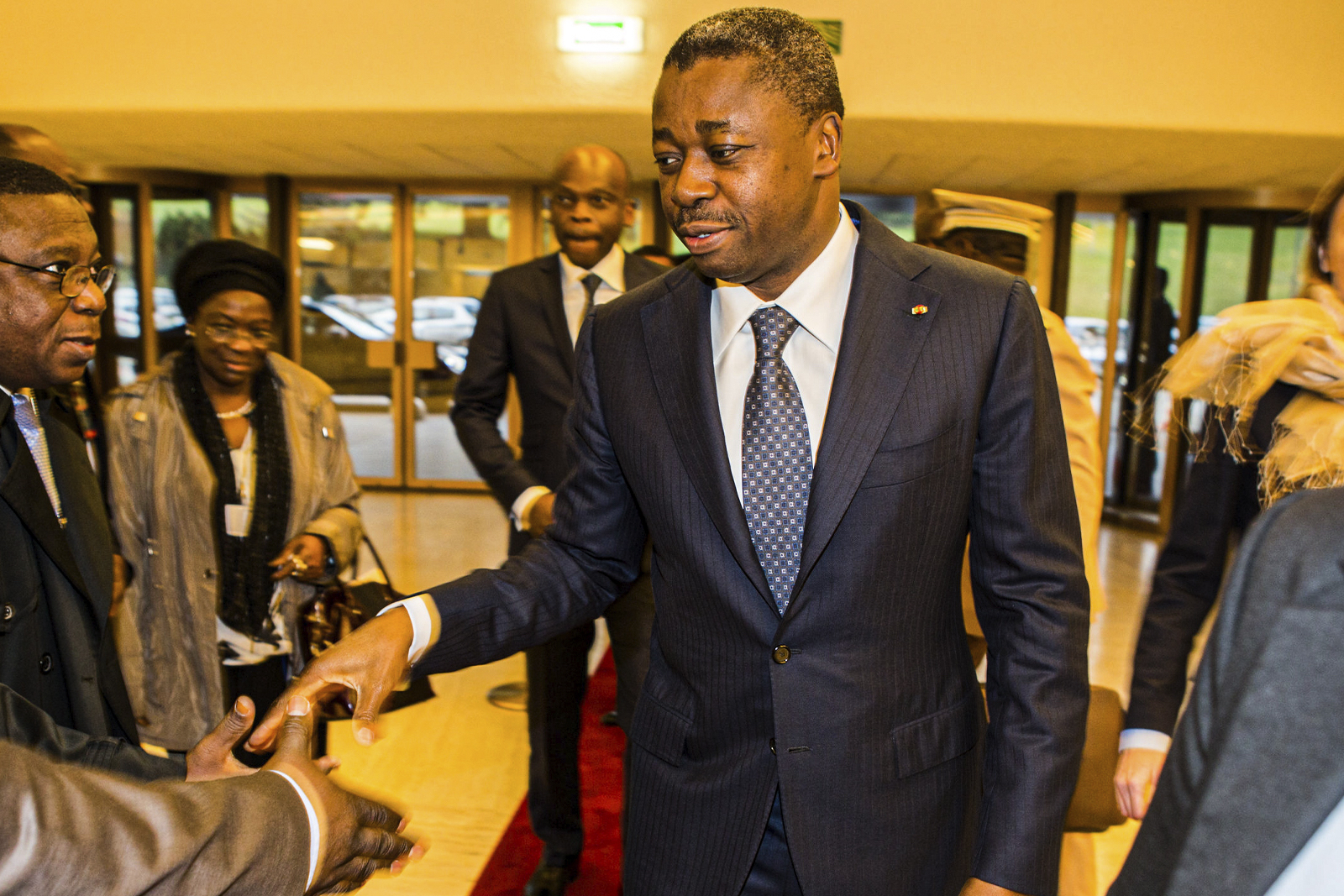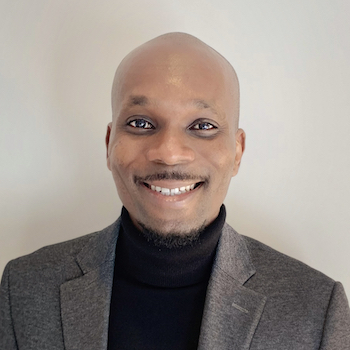
Is Togo Strengthening its Democracy or is it a Naked Power Grab?
In a seismic shift marking a new chapter in its political history, Togo has embraced a radical shift with the ratification of a constitution that transitions the nation’s governance from a presidential to a parliamentary system. The constitutional overhaul, which took effect on March 25, has ignited a firestorm of debate across the socio-political spectrum.
Proponents hail the move as a potential catalyst for enhanced checks and balances and a revitalized legislative landscape. Critics, however, cast a wary eye on the modification, fearing the incitement of political instability and the exacerbation of existing social tensions.
Togo, a nation already grappling with the specter of regional terrorism, particularly in its northern territories, now stands at the precipice of a transformative era. As the nation forges ahead with its ambition for peace and democratic governance, the implications of this constitutional sea change resonate with both promise and trepidation.
In a legislative session that underscored the current political dynamics, Togo’s national assembly, dominated by the ruling Union for the Republic (UNIR) party, cast a near-unanimous vote in favor of the sweeping constitutional changes. With only a whisper of opposition, reflected in a mere two dissenting voices, the bill passed—a testament to the party’s stronghold in the assembly, a reality shaped by the opposition’s absence, which stems from a boycott of the 2018 elections over allegations of voting irregularities.
The newly minted constitution ushers in pivotal reforms, as the country strides toward reshaping its political contour. The alterations embedded within the document are poised to recalibrate the balance of power in the West African nation, reflecting a significant pivot in Togo’s commitment to evolving its governance and democratic processes.
Togo’s revised constitution removes the provision for the direct election of the president by popular vote. Under the new system, the responsibility of electing the head of state will rest with the National Assembly. Alongside this change, the tenure of the presidency is set to extend from five to six years, with the stipulation that it be limited to a single term.
Furthermore, the constitutional reform introduces the role of the President of the Council of Ministers, a position conceived to wield considerable influence within the executive branch. The occupant of this office, elected by the National Assembly, will assume the helm of the government’s daily affairs and bear the mantle of accountability for its performance—a development indicating a strategic redistribution of executive powers within Togo’s political framework.
The newly established President of the Council of Ministers will emerge from the ranks of the majority party in parliament. In the absence of a clear majority, the leader will be drawn from a coalition, signaling a departure from individual leadership to a potentially collective governance approach. The term for this pivotal role is set for six years, paralleling the extended presidential tenure.
Tchitchao Tchalim, the chairman of the national assembly’s committee on constitutional laws, legislation and general administration, elucidated the recalibrated power dynamics under the new constitution. He highlighted that the head of state will cede a significant portion of executive power to the President of the Council of Ministers. This role now carries the dual responsibility of embodying Togo on the international stage and steering the day-to-day governance of the nation, marking a profound shift in the locus of administrative and diplomatic authority.
“The head of state is practically divested of his powers in favor of the president of the council of ministers, who becomes the person who represents the Togolese Republic abroad, and who effectively leads the country in its day-to-day management,” said Tchitchao Tchalim.
The recent constitutional overhaul, however, has become a focal point of contention. The Democratic Forces of the Republic, a key opposition party, has denounced the reform as the latest maneuver in what they describe as an entrenched ‘monarchical regime,’ which they claim has monopolized the nation’s trajectory for six decades.
The timing of the reform has come under scrutiny, coinciding with the lead-up to legislative elections, which has amplified concerns over political motives. Opposition factions, including the influential National Alliance for Change (ANC), cast a skeptical eye on the RPT/UNIR’s actions. There are suspicions that the ruling party is leveraging the current assembly’s composition to entrench its dominance, a strategy seen as pre-empting electoral outcomes.
Amid these reforms, the RPT/UNIR—rooted in power through the Gnassingbé family since 1967—could potentially maintain its hold over Togolese politics until at least 2031. Critics have labeled this shift as a ‘constitutional coup d’état,’ arguing that it unduly perpetuates the family’s longstanding rule and tilts the scales of democratic balance.
In the volatile political climate of West Africa, constitutional modifications and succession crises have frequently been precursors to turmoil, as evidenced by recent events in Guinea and Togo, and echoed in the unrest in Senegal. Amidst these developments, the silence from pivotal regional entities such as the Economic Community of West African States (ECOWAS) has been met with consternation by many Togolese and West Africans alike.
This silence stands in stark contrast to the ECOWAS Protocol on Democracy and Good Governance, particularly Article 2.1, which explicitly prohibits any significant changes to electoral laws within six months of an election without consensus from a majority of political stakeholders. Despite the polemic surrounding Togo’s political maneuverings, ECOWAS’s lack of response is being perceived as an implicit endorsement of the nation’s new constitutional trajectory. This comes particularly in the wake of ECOWAS’s recent readiness to mobilize troops in support of democracy in Niger, setting a precedent for its role in regional stability.
Moreover, the international community, typically forthright in its advocacy for civilian governance and its censure of undemocratic transitions in Africa, has been notably muted. This absence of condemnation or sanctions from Western institutions and outspoken nations such as France adds layers of complexity and disillusionment to the situation.
Compounding the issue is President Faure Gnassingbé’s expected participation in the forthcoming U.S.-Africa Business Summit. This engagement is fueling a sentiment among many Togolese and Africans at large that the allegiance of Western nations and organizations to democratic ideals may be secondary to their strategic interests, raising questions about the depth of their commitment to democracy’s flourishing on the continent.
The current quietude of ECOWAS could have far-reaching consequences. For one, it casts a shadow of doubt over the body’s commitment to fostering democracy and meeting the democratic aspirations of its citizenry. There’s a growing perception that ECOWAS may be favoring the maintenance of status quo leadership at the expense of promoting tangible regional development and stability.
Moreover, this apparent passivity may inadvertently embolden military interventions as a corrective to authoritarian regimes, a scenario that has historical precedence in the region. This could create a vacuum of influence, providing an opening for non-Western actors such as Russia to gain a foothold, a development that could reshape regional geopolitics and potentially contribute to instability.
Additionally, the perceived ineffectiveness of ECOWAS might lead to an increased interest in alternative blocs, such as the Alliance of Sahel States (AES), perceived by many West Africans as a more viable vehicle for achieving sustainable development and self-determination.
Togo, a nation praised for its investment-friendly climate and contributions to regional stability, finds itself at a pivotal juncture. The nation’s Catholic bishops, in a pronouncement on March 26, implored the head of state to delay enacting the newly passed constitutional law. Despite this, the rapid push has sparked widespread anxiety over the potential erosion of democratic norms and the underlying intentions of the current leadership.
The proposed shift to a parliamentary system, complete with a nominal head of state and a prime minister at the helm of policy direction, is fraught with controversy given Togo’s complex political tapestry. Critics argue that true democratic reform to a parliamentary model demands a transparent process, backed by public consensus and inclusive political engagement, rather than the perceived clandestine strategies of the elite.
The removal of the electorate’s power to directly choose the president, instead vesting this authority in a legislature dominated by the ruling party, is seen by many as an overt expression of the government’s trepidation over direct democracy and the potential for political upset in the 2025 presidential race. Moreover, the accelerated timeline for implementing the new constitution, just prior to legislative elections where the opposition hopes to make significant inroads, is viewed by skeptics as a calculated move by the incumbent party to cement its control over Togo.
Such undemocratic tactics threaten to heighten domestic discord, risking the stability of Togo’s already delicate social fabric. Against the backdrop of burgeoning terrorist threats in the north and deep-seated societal cleavages, this political gambit casts a foreboding shadow on Togo’s prospects for peace and democratic progress.

